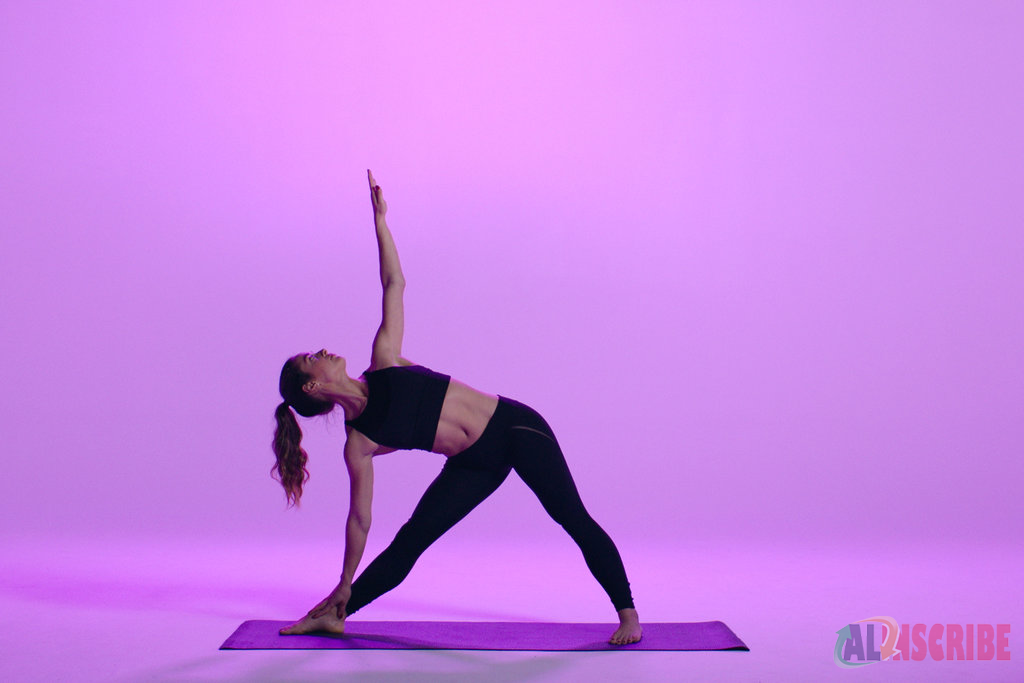How To Become Mentally Strong? Complete Guide

Mental health refers to a person's emotional, psychological, and social well-being — encompassing their ability to handle stress, relate to others, and make decisions. It affects how individuals think, feel, and act, influencing their daily life, relationships, and overall functioning.
Key Components of Mental Health:
Emotional Well-Being: Mental health involves managing emotions effectively, recognizing and expressing them appropriately. Emotional well-being contributes to resilience and coping with life's challenges.
Psychological Well-Being: This aspect focuses on cognitive functions, including thought processes, problem-solving abilities, and decision-making. A healthy mind can adapt to new situations and learn from experiences.
Social Well-Being: Mental health extends to interpersonal relationships and social interactions. Maintaining healthy connections, effective communication, and a sense of community positively impact social well-being.
Factors Influencing Mental Health:
Biological Factors: Genetic predispositions, brain chemistry, and hormonal imbalances can influence mental health. Biological factors play a role in conditions like depression, anxiety, and schizophrenia.
Environmental Factors: External elements, such as family dynamics, upbringing, socio-economic status, and exposure to trauma or abuse, can significantly impact mental health.
Psychological Factors: Personal coping mechanisms, thought patterns, and perceptions contribute to mental well-being. Developing healthy cognitive habits can improve psychological resilience.

Common Mental Health Conditions:
Depression: Characterized by persistent feelings of sadness, hopelessness, and a lack of interest or pleasure in activities.
Anxiety Disorders: Includes conditions like generalized anxiety disorder, panic disorder, and phobias, causing excessive worry or fear.
Schizophrenia: A severe mental disorder affecting thoughts, emotions, and behaviors, often accompanied by hallucinations or delusions.
Bipolar Disorder: Involves extreme mood swings, from depressive lows to manic highs, impacting energy levels and daily functioning.
Eating Disorders: Conditions like anorexia nervosa, bulimia nervosa, and binge-eating disorder affect eating habits and body image.
How to become a Mentally Strong?
1. Self-Awareness: In the realm of self-awareness, consider enrolling in our online mental health courses. Begin by taking stock of your emotions, strengths, and weaknesses, guided by expert instructors. Regularly engage in introspection, reflecting on past experiences with the support of personalized exercises from our course curriculum. Embrace a growth mindset, understanding that our challenges are opportunities for learning and personal development, as explored in our dedicated modules.
2. Positive Mindset: Challenge negative thoughts by enrolling in our transformative online mental health courses. Consciously replace them with positive affirmations guided by experienced instructors. Cultivate a mindset of gratitude through specially designed practices in our course, redirecting your focus to appreciate what you have. Surround yourself with positive influences within our online community, fostering a supportive environment that complements your journey.
3. Resilience Building: Navigate setbacks with resilience by incorporating insights from our online mental health courses. Recognize challenges as inherent aspects of life's journey, and approach them with a problem-solving mindset, actively seeking solutions discussed in our course materials. Foster adaptability with strategies shared by our expert instructors, remaining open to change and viewing it as a chance to evolve, as emphasized in our comprehensive resilience-building modules.
4. Mindfulness and Meditation: Elevate your mindfulness practices by enrolling in our online mental health courses. Stay present and alleviate stress with guided sessions that combine traditional wisdom with contemporary insights. Embrace meditation as a powerful tool for improving focus and restoring emotional equilibrium, as detailed in our specialized modules. Learn deep-breathing techniques from our expert instructors, effective mechanisms discussed in our course for managing anxiety and promoting overall relaxation.
5. Physical Well-Being: Elevate your mental strength through a holistic approach outlined in our online mental health courses. Enroll in our wellness-focused modules that guide you through regular exercise, tapping into the mood-boosting benefits of endorphin release. Nourish your body with a balanced diet discussed in our nutrition modules, rich in nutrients essential for optimal brain health. Prioritize sufficient sleep, with insights shared by our instructors for enhancing cognitive function and maintaining emotional well-being.
6. Healthy Coping Mechanisms: Develop constructive coping mechanisms by enrolling in our online mental health courses. Engage in activities like journaling or creative pursuits as outlets for emotional expression, explored in our course materials. Recognize the importance of seeking support from friends, family, or mental health professionals, with resources provided in our community. Our courses emphasize steering clear of detrimental coping habits through evidence-based strategies.
7. Set Goals and Take Action: Establish realistic and achievable goals with guidance from our online mental health courses, aligning them with your personal and professional aspirations. Break down larger objectives into manageable steps using tools and frameworks shared in our course materials. Celebrate each achievement, regardless of size, with the support of our online community and the motivation gained from our empowering course content.
8. Continuous Learning: Foster a curious mindset with our continuous learning-focused online mental health courses. Actively seek opportunities for personal development through engaging modules led by expert instructors. Embrace challenges discussed in our course materials, recognizing them as gateways to continuous learning and improvement. Stay open to feedback provided within our supportive community, utilizing it as a valuable tool for refining your skills and honing your mental strength.
Best yoga for Mental Health
Yoga is widely recognized for its positive impact on mental health, offering a holistic approach that combines physical postures, breathwork, and meditation. Here are some of the best yoga practices specifically beneficial for mental well-being:
1. Hatha Yoga:
- Description: Hatha yoga is a gentle form of yoga that emphasizes physical postures and breathing exercises.
- Benefits: Enhances overall well-being, promotes relaxation, and improves mental focus.
2. Vinyasa Yoga:
- Description: Vinyasa involves a fluid sequence of movements synchronized with breath, encouraging a continuous flow.
- Benefits: Boosts energy, reduces stress, and promotes mindfulness through movement and breath coordination.
3. Restorative Yoga:
- Description: Restorative yoga focuses on deep relaxation and is characterized by supported poses with props.
- Benefits: Induces a state of deep relaxation, alleviates stress, and promotes a sense of calmness.
4. Yin Yoga:
- Description: Yin yoga involves holding passive poses for an extended period, targeting deep connective tissues.
- Benefits: Releases tension in the body, improves flexibility, and encourages a meditative state.

5. Kundalini Yoga:
- Description: Kundalini yoga combines physical postures, breathwork, and chanting to awaken spiritual energy.
- Benefits: Enhances mood, reduces anxiety, and fosters a sense of inner peace and clarity.
6. Pranayama (Breathwork):
- Description: Pranayama focuses on conscious breath control, regulating the inhalation and exhalation.
- Benefits: Calms the nervous system, reduces stress, and enhances mental clarity.
7. Mindfulness-Based Stress Reduction (MBSR) Yoga:
- Description: MBSR combines mindfulness meditation with gentle yoga postures.
- Benefits: Reduces stress, improves focus, and promotes a mindful awareness of the present moment.
8. Iyengar Yoga:
- Description: Iyengar yoga emphasizes precise alignment and the use of props to support poses.
- Benefits: Enhances body awareness, improves posture, and promotes mental concentration.
9. Bhakti Yoga:
- Description: Bhakti yoga emphasizes devotion, incorporating chanting, singing, and prayer.
- Benefits: Fosters a sense of connection, love, and gratitude, promoting emotional well-being.
10. Aerial Yoga:
- Description: Aerial yoga uses silk hammocks to support and elevate traditional yoga poses.
- Benefits: Improves mood, builds confidence, and offers a unique perspective, promoting a sense of playfulness.
11. Yoga Nidra:
- Description: Yoga Nidra, or "yogic sleep," is a guided meditation performed in a relaxed lying down position.
- Benefits: Reduces anxiety, enhances relaxation, and facilitates a deep state of conscious rest.
12. Laughter Yoga:
- Description: Laughter yoga combines laughter exercises with yogic breathing.
- Benefits: Boosts mood, reduces stress, and promotes a sense of joy and playfulness.
Conclusion:
Building mental strength is an ongoing process that involves intentional practices and a commitment to personal growth. By incorporating these strategies into your daily life, you can develop the resilience needed to navigate life's complexities and emerge stronger, both mentally and emotionally. Remember, the journey to mental strength is unique to each individual, so be patient with yourself and celebrate the progress you make along the way.
Article Comments
Similar Articles
Articles Search
Sponsor
There are zero sub-categories in this parent category.
There are zero sub-categories in this parent category.
There are zero sub-categories in this parent category.
















